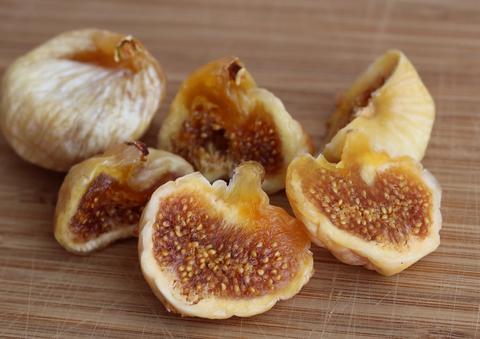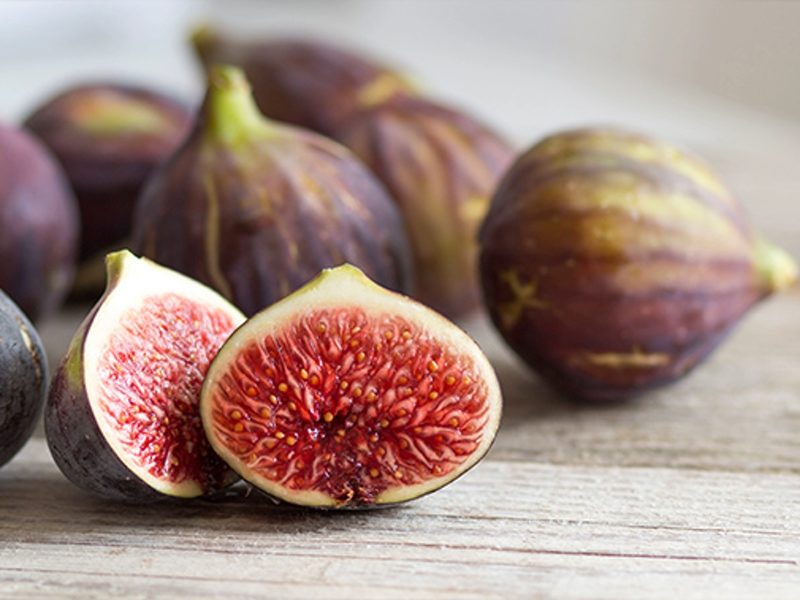Figs have been popular in the Mediterranean since ancient times; reported to have been first cultivated in Egypt and then spread first to Ancient Greece, the fruit is considered so valuable that it was at one stage illegal to export them outside Greece.

Nowadays Greece is one of the largest producers of figs worldwide, thanks to its great climate and unlimited summer sun.
Figs are rich in calcium, potassium (a mineral that helps to control high blood pressure), dietary fibre and magnesium.
It is among the richest in fibre fruits and is considered a great anti-oxidant, helping to fight many illnesses and diseases.
Figs were an important part of the basic diet of the ancient Greeks, and like olive and wine, a symbol of peace and prosperity.

The nutritional value of figs, particularly dried ones, which are very popular in Greece and amongst Greeks worldwide is indisputable. Rich in natural fibre, they help in weight control, help regulate blood pressure and boost ligament health: just half a cup provides 300mg.
Dried figs can be enjoyed throughout the year and stay fresh for several months. They are best kept at room temperature in a cool and dry place wrapped well.
They’re wonderful when chopped, mixed with other dried fruits, nuts and spices, added to bread and cakes or stewed. Figs' ideal matches are ingredients with intense flavours such as cheeses and other small goods.

Benefits of both fresh & dried figs-
- Figs have a similar function in the body as cereal; their high fibre content promotes healthy bowel function and their high vitamin B content is essential for intestinal regulation.
- The mineral content of figs closely resembles that of human milk and gram for gram they contain twice as much calcium as cows milk.
- Dried figs are rich in fibre, potassium, calcium, magnesium and iron.
- They are a good source of potassium which is important in helping to regulate blood pressure.
- The soluble fibre, called pectin, in figs may help reduce blood cholesterol.
- Figs are loaded in vitamins A, B1 and B2 as well as phosphorus, manganese, sodium and chlorine;
- Due to the high levels of fibre. Figs are amongst the most highly alkaline foods, making them useful in balancing the pH levels of the body.
- They are high in natural and simple sugars and are a good alternative to sugar.

Tips for adding Figs to your Diet
- Keep dried figs in your handbag and have them as a healthy energy snack whenever needed.
- For extra flavour and nutrients, stuff them with nuts and drizzle with a little raw honey.
- Add figs either dry or fresh to oatmeal or cereal.
- Add chopped figs to salads or savoury dishes.
- Just pick some straight off a fig tree and eat all if it, including the skin!

